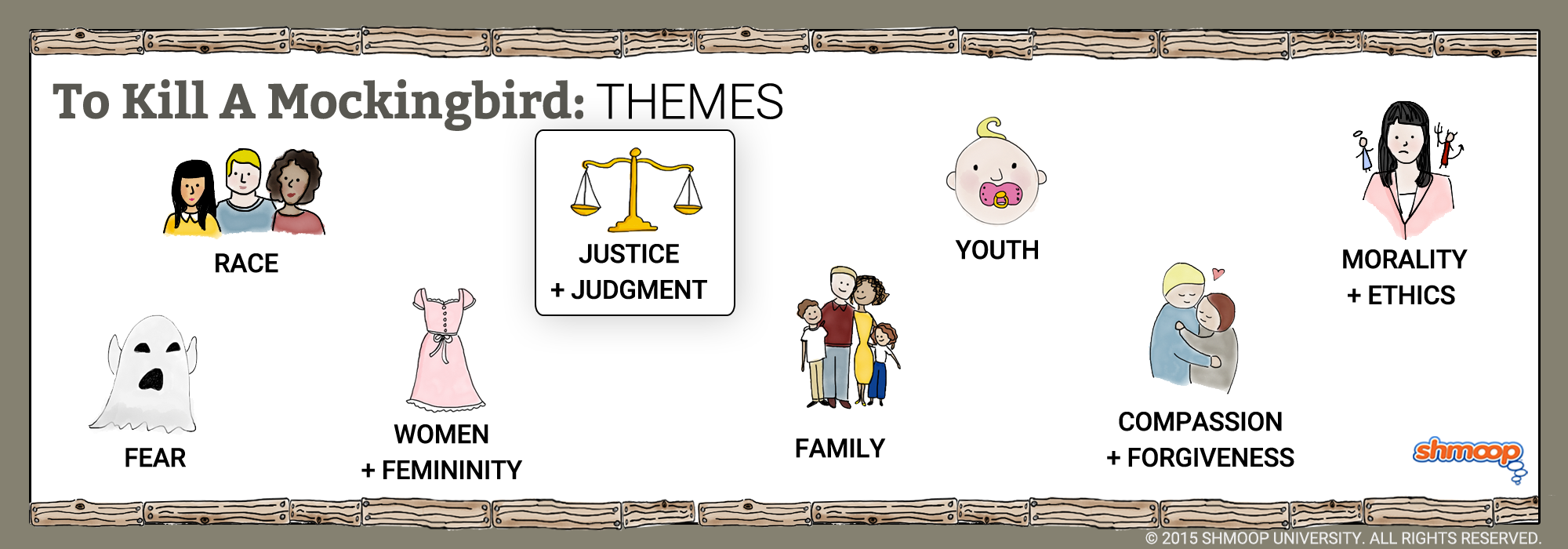 (Click the themes infographic to download.)
(Click the themes infographic to download.)
Ideal: a jury of one's peers dispassionately determine guilt or innocence based on the fact. Reality: a group of white men who aren't influential enough to get out of jury duty have decided the case before they even enter the courtroom. In To Kill a Mockingbird, justice is a privilege, not a right. You want a fair trial? Well, we sure hope you were lucky enough to be born white.
Questions About Justice and Judgment
- Does Tom Robinson receive a fair trial under the law? Why or why not? Would having an all-black jury have resulted in a different verdict?
- According to the novel, is it ever justified to act outside the law in order to ensure justice? If so, when is it justified? If not, what do you do when the law allows injustice?
- What's the novel's take on the American legal system? What are its strengths, and what are its weakness?
Chew on This
Try on an opinion or two, start a debate, or play the devil’s advocate.
In To Kill a Mockingbird, the criminal court system may be broken, but it's still the best chance for justice.
To Kill a Mockingbird contrasts court-justice and vigilante-justice to show that they both have strengths and weaknesses.